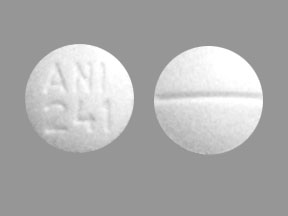Methazolamide Interactions
There are 254 drugs known to interact with methazolamide, along with 11 disease interactions. Of the total drug interactions, 22 are major, 227 are moderate, and 5 are minor.
- View all 254 medications that may interact with methazolamide
- View methazolamide disease interactions (11)
Most frequently checked interactions
View interaction reports for methazolamide and the medicines listed below.
- Aspirin Low Strength (aspirin)
- Azopt (brinzolamide ophthalmic)
- Benadryl (diphenhydramine)
- Co-trimoxazole (sulfamethoxazole / trimethoprim)
- Combigan (brimonidine / timolol ophthalmic)
- CoQ10 (ubiquinone)
- Cymbalta (duloxetine)
- Demerol (meperidine)
- Eliquis (apixaban)
- Fish Oil (omega-3 polyunsaturated fatty acids)
- Flonase (fluticasone nasal)
- Lasix (furosemide)
- Lumigan (bimatoprost ophthalmic)
- Lyrica (pregabalin)
- Metoprolol Succinate ER (metoprolol)
- Metoprolol Tartrate (metoprolol)
- Norco (acetaminophen / hydrocodone)
- Nurtec ODT (rimegepant)
- Phenergan (promethazine)
- Protonix (pantoprazole)
- Restasis (cyclosporine ophthalmic)
- Singulair (montelukast)
- Symbicort (budesonide / formoterol)
- Synthroid (levothyroxine)
- Topamax (topiramate)
- Tylenol (acetaminophen)
- Tylenol Extra Strength (acetaminophen)
- Vitamin B12 (cyanocobalamin)
- Vitamin D2 (ergocalciferol)
- Vitamin D3 (cholecalciferol)
Methazolamide disease interactions
There are 11 disease interactions with methazolamide which include:
- bone marrow depression/blood dyscrasias
- adrenal insufficiency
- closed-angle glaucoma
- hypokalemia
- hyponatremia
- severe kidney disease
- severe liver disease
- respiratory acidosis
- diabetes mellitus
- gout
- metabolic acidosis
More about methazolamide
- methazolamide consumer information
- Compare alternatives
- Pricing & coupons
- Reviews (5)
- Drug images
- Side effects
- Dosage information
- During pregnancy
- Drug class: carbonic anhydrase inhibitors
- Breastfeeding
- En español
Related treatment guides
Drug Interaction Classification
| Highly clinically significant. Avoid combinations; the risk of the interaction outweighs the benefit. | |
| Moderately clinically significant. Usually avoid combinations; use it only under special circumstances. | |
| Minimally clinically significant. Minimize risk; assess risk and consider an alternative drug, take steps to circumvent the interaction risk and/or institute a monitoring plan. | |
| No interaction information available. |
See also:
Further information
Always consult your healthcare provider to ensure the information displayed on this page applies to your personal circumstances.


